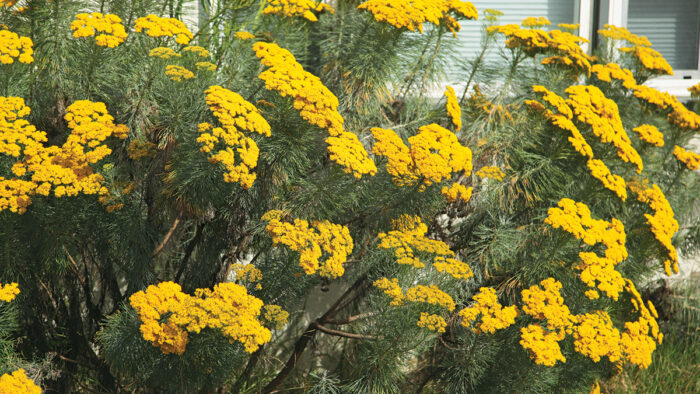
1. Fruity Germander
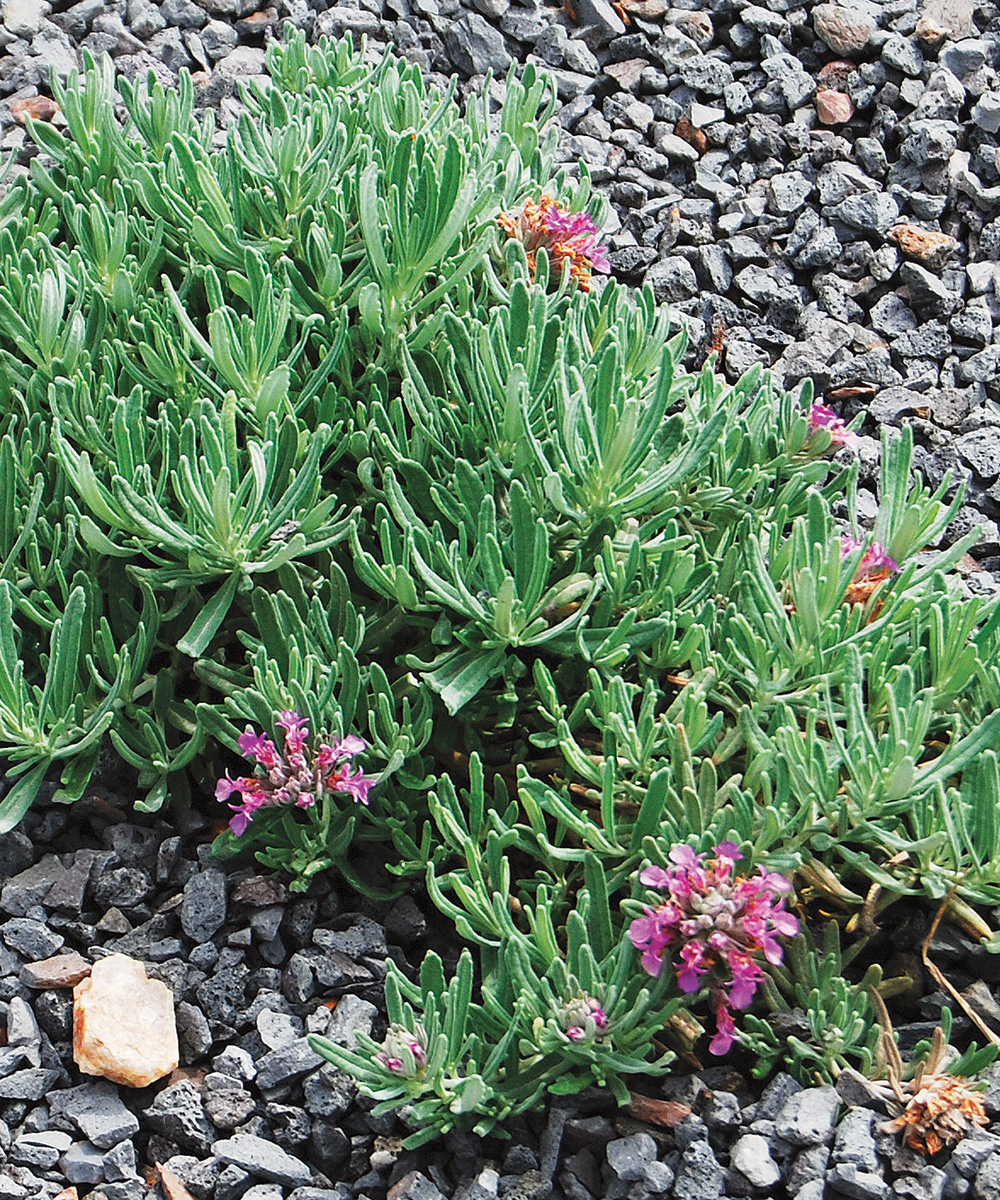
Name: Teucrium cossonii (syn. T. majoricum)
Zones: 8–11
Size: 4 to 6 inches tall and 2 to 3 feet wide
Conditions: Full sun; well-drained soil
Native Range: Mediterranean coast
This lovely ground cover doesn’t always show well in a nursery pot, but once in the ground it really shines. Like other germanders, it is tough and hearty as long as it has decent drainage. In fall and spring, the silver foliage is covered by a cloud of purple blooms. This lovely silver spreader is perfect for edging a bed, or as an accent in a rock garden. Fruity germander, like all the plants on this page, requires little to no water once established, which is important given our region’s continued drought conditions.
2. Golden Coulter Bush
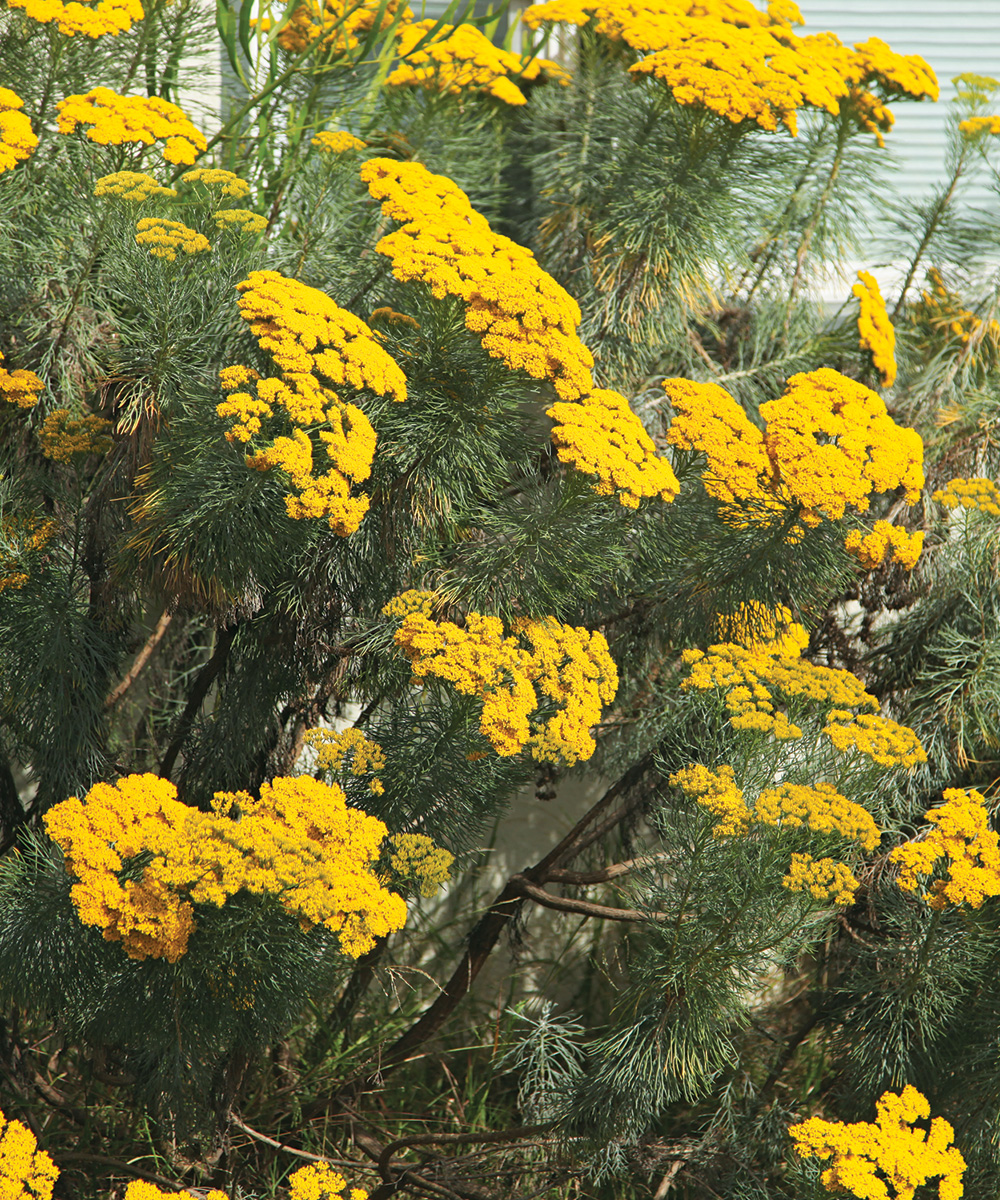
Name: Hymenolepis crithmifolia
Zones: 9–11
Size: 3 to 4 feet tall and wide
Conditions: Full sun; dry, well-drained soil
Native Range: South Africa
I recently provided cuttings from my personal garden to return this rare South African perennial to the nursery trade. My reasoning? It is an incredibly tough and hardy plant that can handle almost no care—even being hit by a truck (a characteristic that, unfortunately for my garden, I know to be true). This particular selection has feathery silver foliage and yellow-green, long-lasting blooms that are particularly showy in spring and summer. Golden coulter bush responds well to pruning every few years, and it resprouts readily.
3. ‘Semper Purple’ Phlomis
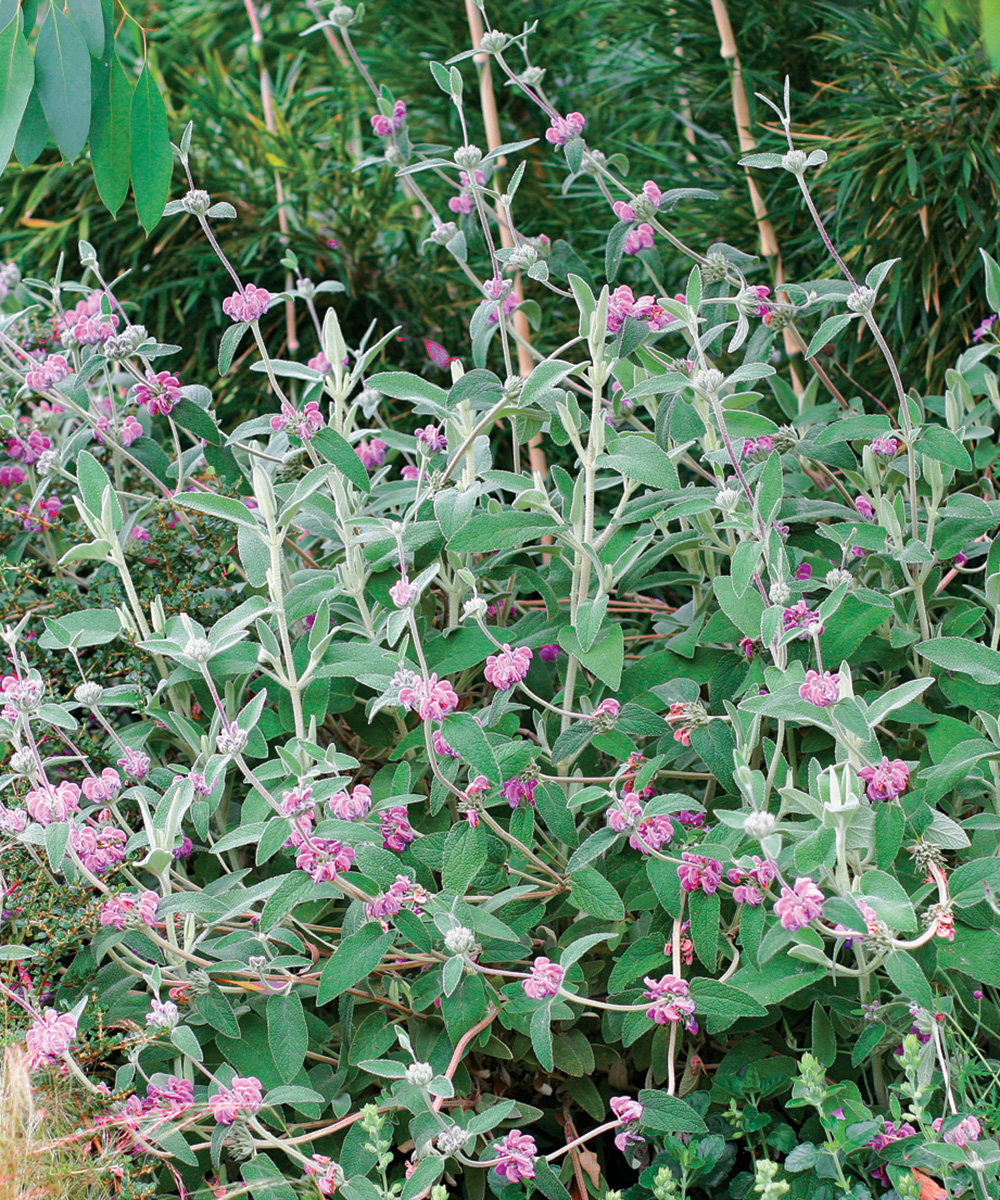
Name: Phlomis purpurea ‘Semper Purple’
Zones: 9–11
Size: 2 to 3 feet tall and wide
Conditions: Full sun; well-drained soil
Native Range: Spain, Portugal, and Morocco
Yellow phlomis, also known as hardy Jerusalem sage (Phlomis russeliana, Zones 5–9) is everywhere. So why not go for pink instead? This beautiful cultivar not only has pinkish-purple flowers, but the leaves are more compact, and the plant has an overall less leggy and more elegant feel than its yellow cousin. ‘Semper Purple’ creates a strong textural contrast and looks great paired with fine foliage plants such as grevillea (Grevillea spp. and cvs., Zones 9–10).
4. French Aloe
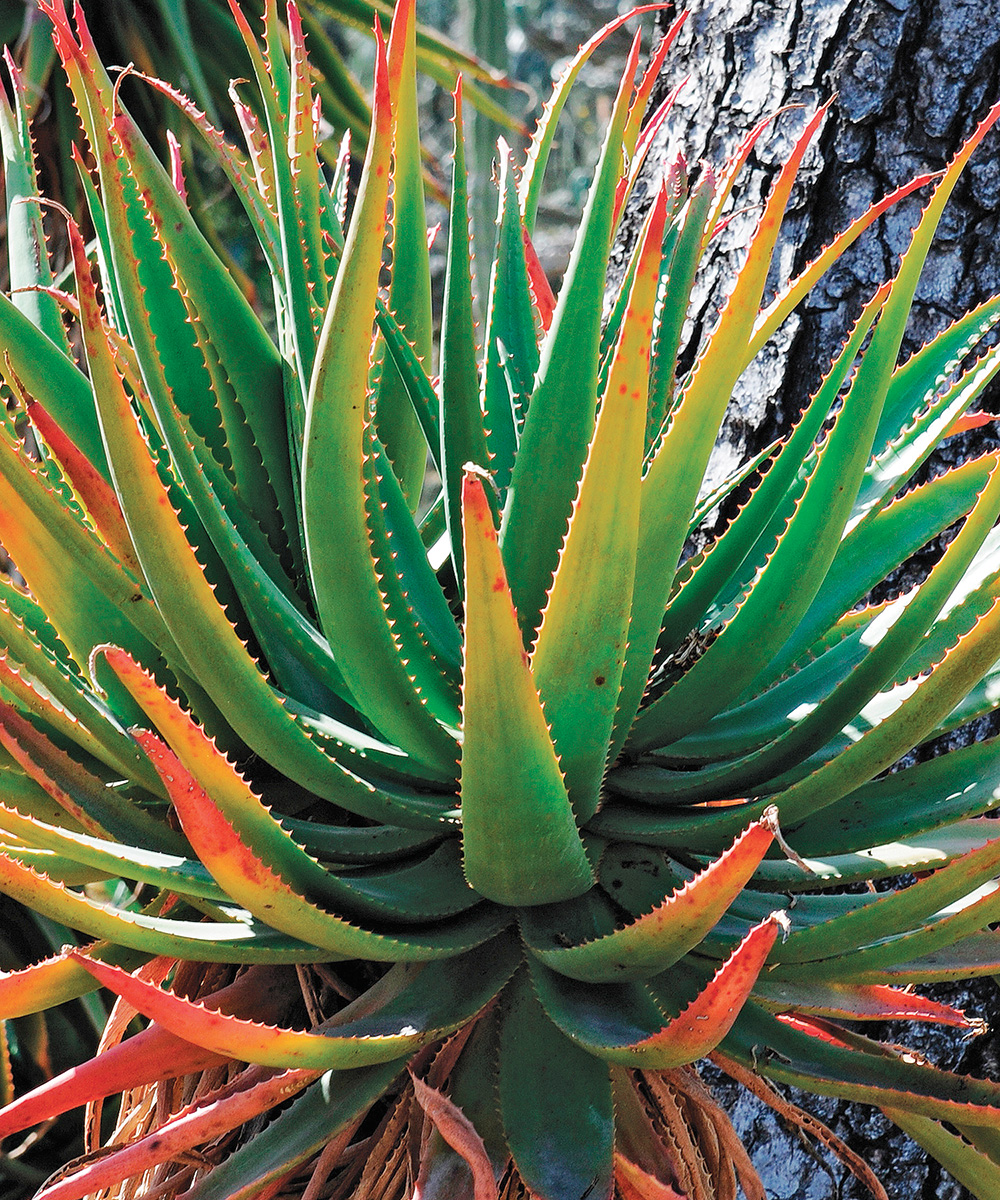
Name: Aloe pluridens
Zones: 9–11
Size: 2 to 3 feet tall and wide
Conditions: Full sun to partial shade; well-drained soil
Native Range: Southern Africa
Aloes are often underappreciated, but they bring a ton of color to the garden in winter and summer when many other plants are not in bloom, as they tend to have colorful foliage in times of environmental stress. French aloe forms a beautiful rosette, which develops peach and yellow-green tones from winter’s chill or in dry summer months. This is also a great focal-point plant due to its strikingly large, coral flowers that appear in late fall or early winter.
Rachel Young is a horticulturist in Los Angeles.
Fine Gardening Recommended Products
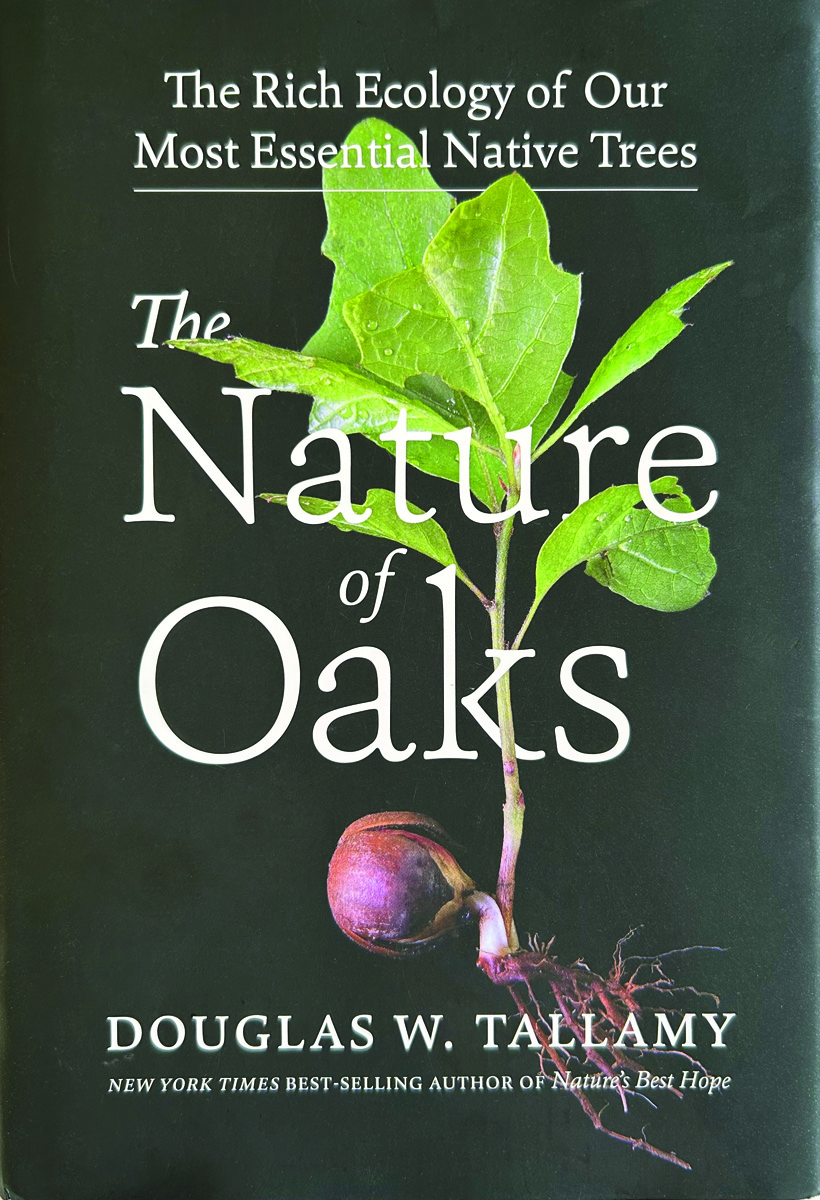
The Nature of Oaks: The Rich Ecology of Our Most Essential Native Trees
Fine Gardening receives a commission for items purchased through links on this site, including Amazon Associates and other affiliate advertising programs.
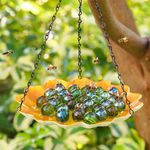
Bee Watering Station with Vivid Flower Design
Fine Gardening receives a commission for items purchased through links on this site, including Amazon Associates and other affiliate advertising programs.







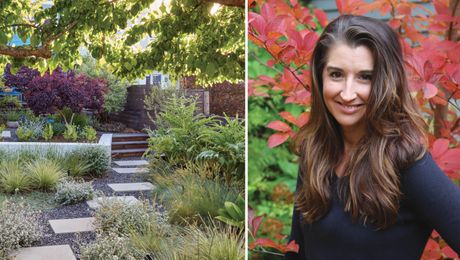
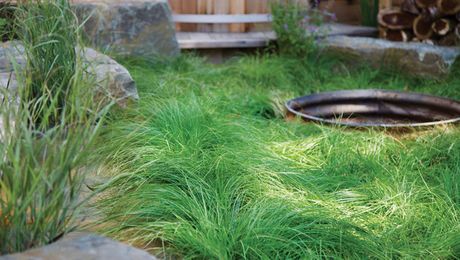










Comments
Log in or create an account to post a comment.
Sign up Log in